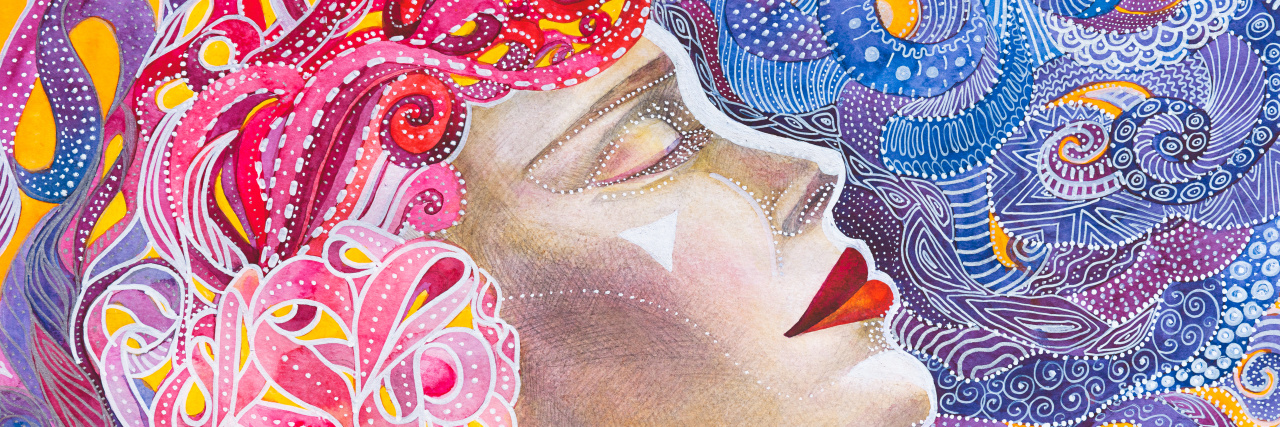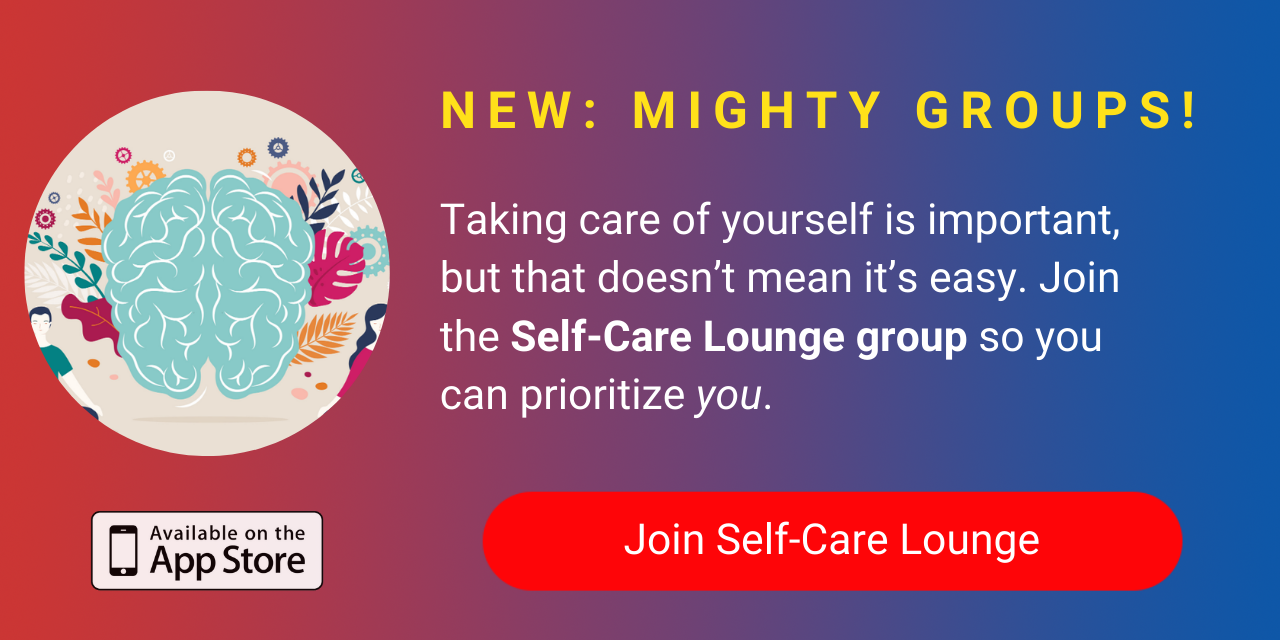I’m the type of person who loves a good wallow. And I don’t mean that solely in a negative way — I wallow in the things in life that make me pause and feel. Sometimes that means wallowing in a crystal-clear river on a hot summer day until my entire body is pruned or sitting in the hot sun on the beach an hour too long. Other times it means I wallow in negative thoughts surrounding my chronic illness. I am so good at wallowing that I can spend hours of much-needed rest time stuck in a constant stream of thought surrounding how my pain is affecting my life. I can wallow so well that once I’m snapped out of my wallowing, I’ve wasted a good portion of my day on doing absolutely nothing but feeling feelings.
Very recently, something different happened. I woke up and felt a shift. Although it was day one of my period and I knew some level of pain was imminent, I didn’t wallow. I didn’t stay in bed until 10 a.m. just thinking. I got up, took a shower, harnessed a stream of positive thoughts, and began what I’m now choosing to coin “the un-wallowing.”
This morning my husband and I had to bail on family plans at a lake over an hour away from home; plans that were completely changed to accommodate us in the first place. I knew an hour and a half car ride when I’m in the middle of a pain flare was not something I could put my body through, and so I did what I’ve had to do a million times before. I picked up my phone and broke the news to my family that we wouldn’t be able to make it. As always, I was blessed with understanding, compassion and empathy, which never ceases to make me emotional, and which I’m so grateful for.
In the past, all that love and support still wouldn’t be enough to fight off the wallowing thoughts that would almost immediately creep in. “I’ve disappointed them.” “I’m being so predictable.” “I’m missing a beautiful day outside with my family by a lake in the middle of summer.” “I’m letting this pain win.”
When you live with a chronic illness that you can’t predict or control, it can be really tough to see the glass as half full. The wallow creeps in even before a flare even does; it’s putting your guard up, it’s getting you prepared almost all the time for something you know could be right around the corner. Wallowing and overthinking for a chronic pain warrior can be almost a form of control. If we second guess everything and overanalyze, maybe the answers to all of life’s insufferable questions will arise. Maybe we’ll be cured, or never be in pain again! But does that ever really happen for us? If we wallow for too long in the negative internal dialogue, does all our suffering come to an end? Of course not. We have a choice, as hard as it might be to see that while we’re struggling. We have a pretty incredible choice to un-wallow.
In Buddhism, there are four sublime states of the mind or divine states of dwelling called “Brahma-vihara.” The fourth state is Upekkha, or equanimity. Equanimity allows us to transform our thoughts to be free of discrimination and attachment to self or others. We remain completely undisturbed by exposure to pain, emotions, or other things that might cause an imbalance of the mind. Upekkha is the acceptance of what is, not the attempt to control or change the situation. It is literally the opposite of wallowing.
I have recently learned more about Buddhism and how it relates to chronic illness by reading the book “How to Be Sick” by Toni Bernhard. There was an extremely eye-opening section about equanimity and trying to control the uncontrollable that completely blew me away. Toni was describing my plight in great detail; I was wallowing in thoughts and wallowing in what the pain was doing to my life so much so that I forgot I have the ability to control my situation with grace and bravery.
Here’s the thing. I strongly believe it’s OK sometimes to let all the feelings in and sit with them for a minute. In fact, I only recently gave myself full permission to do this and to not punish myself at all for it. But what I’m trying my best to remember and reflect on to get me through the wallow is that I can also let those feelings go. I can remind myself that all the days aren’t bad. This is the gem of truth and optimism my mental health absolutely needs in order to get me through the tunnel or over to the other side. It’s making a mental note that this isn’t how it always is; life can be beautiful, joyful, and full of fun plans and good days. And if there is a pocket of time where there are a whole bunch of not-so-good days, as unideal as that may be, I can still live with that, and I will be OK.
This shift in mindset has been getting me through, and it’s at the forefront of my brain when I think about healing. I’ve had four surgeries and countless procedures and therapies. I’ve changed my diet and seen a slew of different doctors. These things may not ever change me or rid me of my illness. What can change is the way I look at my circumstances and the hope I continue to cultivate when I think about the good days I do have.
The practice of equanimity and un-wallowing is not easy. In fact, it’s one of the most difficult things I’ve ever had to train my brain to do. I still have those wallow-heavy days sometimes. But I can choose to live inside the bad thoughts, or I can choose to sit on the beach and let the sunbeams kiss my face. Only I have the power to give myself permission to practice self-compassion and choose the best option.
Getty image by Kateryna Kovarzh.


